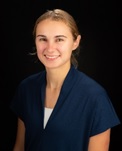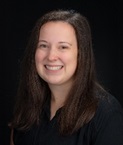Rehabilitation and Prosthetic Services
VA Prosthetic & Orthotic Residency Program
Originally established in 1999, the US Department of Veterans Affairs Prosthetic & Orthotic Residency (VAPOR) program has grown to become the largest hospital-based O&P residency program in the United States. VAPOR sites are accredited by the American Board for Certification in Orthotics, Prosthetics, and Pedorthics (ABCOPP) and the National Commission on Orthotic and Prosthetic Education (NCOPE) in the disciplines that they host. Oversight comes from the VA Orthotics, Prosthetics, and Pedorthics Clinical Services (OPPCS) national program office and the VA Office of Academic Affiliations (OAA).
VAPOR is guided by VA’s core values. Together, values of Integrity, Commitment, Advocacy, Respect, and Excellence mean “I CARE.” More than just another slogan, “I CARE” is our goal for every encounter. As we care during clinical encounters, we also care about our residents. Our residency faculty are committed to developing residents into highly qualified and competent clinicians.
|
“I chose a VA residency for the exposure to a large hospital-based care system, the flexibility to optimize patient care without insurance limitations, and to serve fellow Veterans – giving them the care, time, and advocacy I myself would want to receive.” -Madelaine Ekin, US Coast Guard Veteran, Resident Orthotist |
 |
Mission
Utilizing the nation’s largest integrated health care system, the mission of the VA Prosthetic & Orthotic Residency is to conduct an interprofessional training program to develop the next generation of prosthetic and orthotic clinicians capable of maximizing mobility, restoring function and quality of life for Veterans and the Nation. To this end, we are committed to maximize the resident experience through scheduled internal and external educational opportunities. We offer each resident the opportunity to provide Veteran patients with the most advantageous, clinically appropriate device, without regard to insurance reimbursement.
|
“The VA allowed me to grow significantly as a clinician. I had a large caseload and quickly gained years’ worth of experience by working with multiple clinicians on difficult cases. Through the VA Residency, I gained valuable experience in both clinical care and research. I used a multitude of O&P technologies and gained experience with some of the world’s most advanced prostheses available. My time in a VA residency prepared me well for the O&P field and helped the VA retain me as a VA employee.” -Gabriel Burklund, VAPOR Graduate, VA Orthotist-Prosthetist |
 |
Residency Experience
Residents are exposed to a wide variety of cases and clinical interventions during their time at VA. While serving alongside orthotists, prosthetists, physicians, therapists, and other allied healthcare providers, VA residents witness first-hand how these disciplines come together to provide unsurpassed care to our nation’s Veterans.
The program begins annually mid-to-late June on the VAPOR universal start date. Residents typically work 40 hours each week during a fixed schedule with no night or weekend call. As residents gain experience and competence, they may be expected to provide care independently to Veterans, but they are never at a site alone and will always have onsite clinical support. As required by NCOPE, VAPOR residents participate in pediatric care at affiliate institutions under the direction of their clinical staff.
While many sites only host one resident at a time, the VAPOR program has a national footprint with a national class of residents each year. A National Lead Resident hosts multiple virtual meetings each month enabling residents to network, communicate, and collaborate regardless of geographic proximity.
|
“I foremost wanted to be of service to my extended military Veteran family. I also wanted to be able to practice based on what is in the best interest of the patient. It was important for me to work for an agency who promoted a team approach towards patient orthotic and prosthetic care.” -Ligia Miguel-Ghaziosharif, US Air Force Veteran, VAPOR Graduate, VA Orthotist-Prosthetist |
 |
Resident Outcomes
The clinical experience is only part of the story. VA residents have presented at the American Academy of Orthotists and Prosthetists’ (AAOP) Scientific Symposium and the American Orthotic & Prosthetic Association (AOPA) National Assembly. They have been published in multiple national rehabilitation-focused journals, sharing their expertise with the field, and impacting care beyond VA.
|
“A large part of my decision to pick a career in Orthotics and Prosthetics was to have the opportunity to work with and serve Veterans. Choosing to complete both of my residencies with the VA was a no-brainer for me. The culture within the VA encourages collaboration, provides excellent on-the-job training, and is conducive to providing high quality care to our veterans.” - Nicholas Charon, Resident Orthotist |
 |
Benefits
In addition to a competitive annual salary, residents have access to the widest selection of health plans in the country through the Federal Employees Health Benefits program. Residents accrue 26 days of paid time off (13 sick, 13 annual) in addition to paid federal holidays.
VA pays for NCOPE residency registration fees and typically funds resident travel to the American Academy of Orthotists & Prosthetists Annual Meeting & Scientific Symposium and the preceding VA Breakout Meeting.
|
“From being a member of an interdisciplinary care team, utilizing and learning new technology, serving the Veterans, and interacting with coworkers, each day has provided tremendous opportunities and experiences as a resident. There is nothing better than putting a smile on your patient’s face as they take their first steps again or they can better complete their daily tasks because of your efforts.” - Alyssa Petz, Resident Prosthetist |
 |
Locations
|
|
Orthotics |
Prosthetics |
|
Dallas, TX |
✓ |
✓ |
|
Hines, IL |
✓ |
✓ |
|
Kansas City, MO |
|
✓ |
|
Long Beach, CA |
✓ |
✓ |
|
Los Angeles, CA |
✓ |
✓ |
|
Minneapolis, MN |
|
✓ |
|
New York, NY |
✓ |
✓ |
|
Omaha, NE |
✓ |
✓ |
|
Orlando, FL |
✓ |
✓ |
|
Portland, OR |
✓ |
✓ |
|
Richmond, VA |
|
✓ |
|
San Antonio, TX |
|
✓ |
|
San Diego, CA |
|
✓ |
|
Seattle, WA |
✓ |
✓ |
|
Tampa, FL |
✓ |
✓ |
VAPOR residents are trained at 15 VA medical centers across 11 states in some of the most desirable locations in the country.
Application Requirements
The application portal typically opens during the first week of November for residencies starting during the following summer.
Complete applications, including a resume/CV, transcripts, and 2 or more evaluations, must be received by the close date which is typically in early January. Applications must be submitted using OPRESCAS as required by NCOPE.
Applicants must meet both VA eligibility requirements and NCOPE residency eligibility requirements. Applicants that do not meet the NCOPE eligibility requirements must obtain and submit written authorization from NCOPE allowing the deviation.
Ready to Apply? Click here to begin the application in OPRESCAS once the application portal has opened.
Frequently Asked Questions
- What makes the perfect VA resident?
- The perfect VA resident is comfortable working both independently and as a part of a collaborative team with diverse backgrounds. They embody our core values of Integrity, Commitment, Advocacy, Respect, and Excellence (I CARE). And they are patient, understanding that as a federal agency, there are bureaucratic safeguards that will be a part of their time here.
- Do you offer a research-based residency?
- Each site has different opportunities. Residents at sites with ongoing research projects can potentially participate in those studies. This would require permission from the supervising clinic staff and the research leaders. Additionally, due to time constraints it may be difficult for a resident to see a research project from start to finish.
- What if we want more time during our pediatric rotation?
- Faculty work to ensure residents participate in an adequate amount of pediatric and adolescent care during their residency. As VA policy dictates the quantity of time spent away from the host VA facility, time in a pediatric setting will be appropriate but a relatively small portion of the VA residency experience.
- How do you compare VA residency to one in a private clinic setting?
- VA residents learn as part of an interdisciplinary care team, meaning they have access to physicians and allied healthcare providers from a variety of specialties driving a different thought process in relation to patient care. VA clinicians typically don’t take call during nights or weekends and residents’ focus is on learning instead of billing. The VA allows residents to build a better work-life balance due to work hours being more firmly regulated.
- Is there preference given to past residents during hiring for permanent post-residency clinical positions?
- The experience gained from a VA residency is certainly beneficial to any applicant who would apply to a permanent VA position and is valued by hiring managers. VA has hired many residents after completion of their residency.
- Can you explain in more detail the Lead Resident role?
- The position of Lead Resident was created following a call for community. The Lead Resident serves as a voice for residents with leadership, in meetings, when concerns arise, and when leadership needs to share announcements with residents. The Lead Resident also organizes study group and monthly educational meetings. Each Lead brings something new and unique to the positions, but focuses on community connection for the residents at VAs across the country.
If you still have questions or would like more information, please email VHAOPPCSVAPORINFO@va.gov.




















